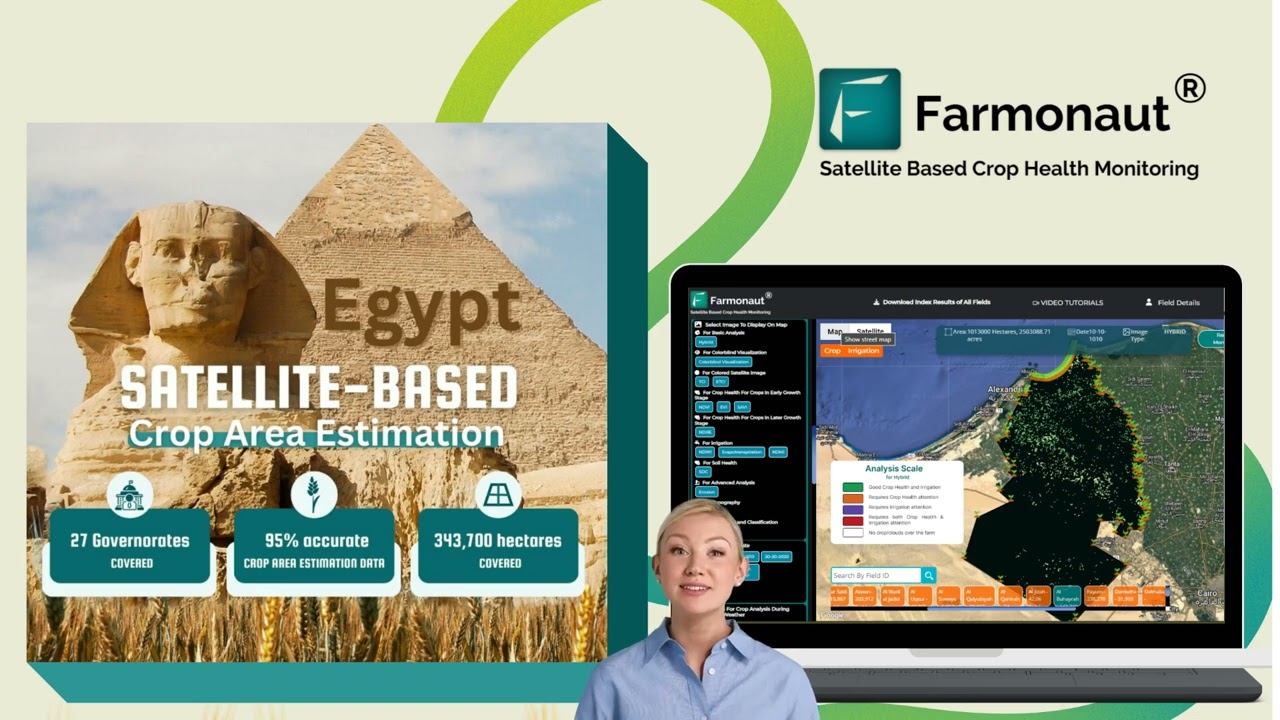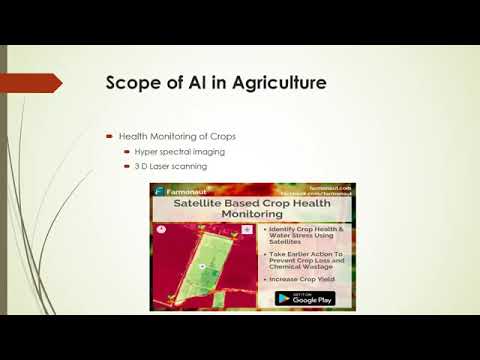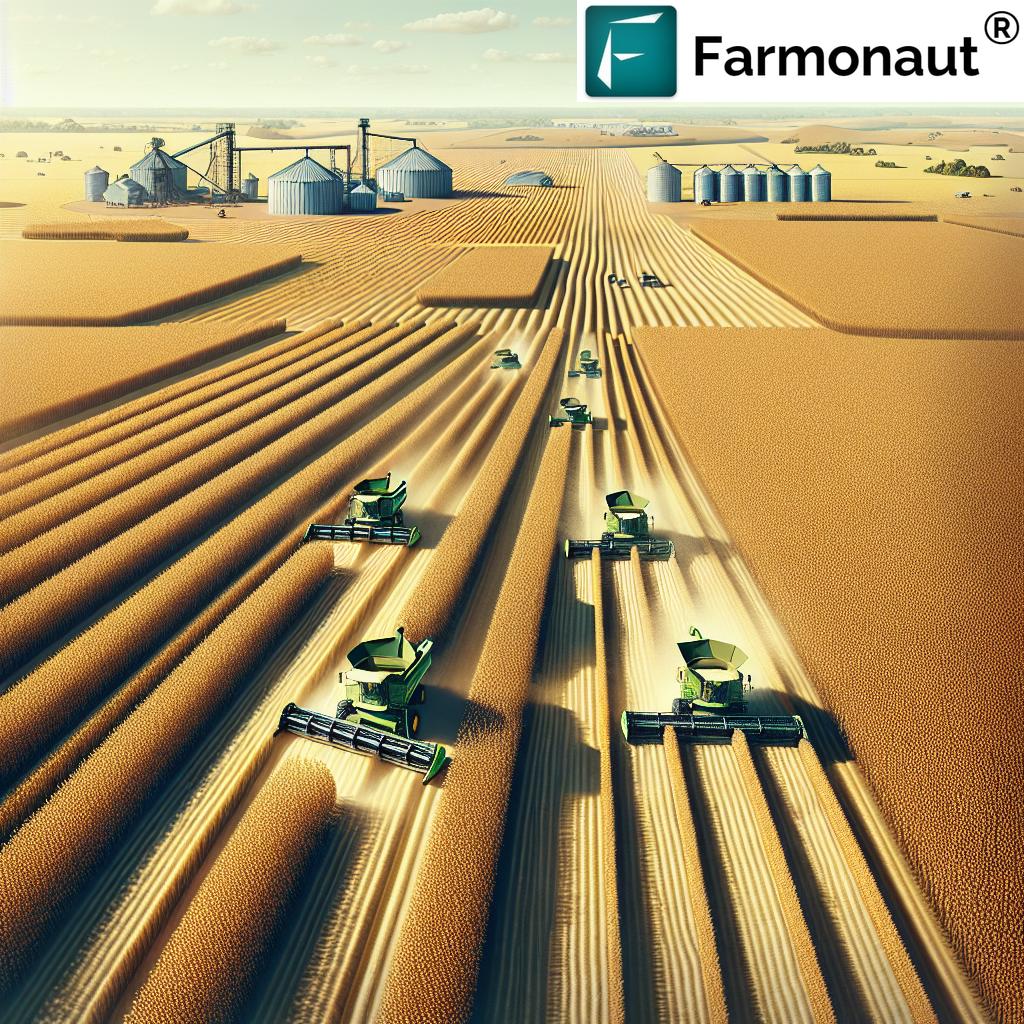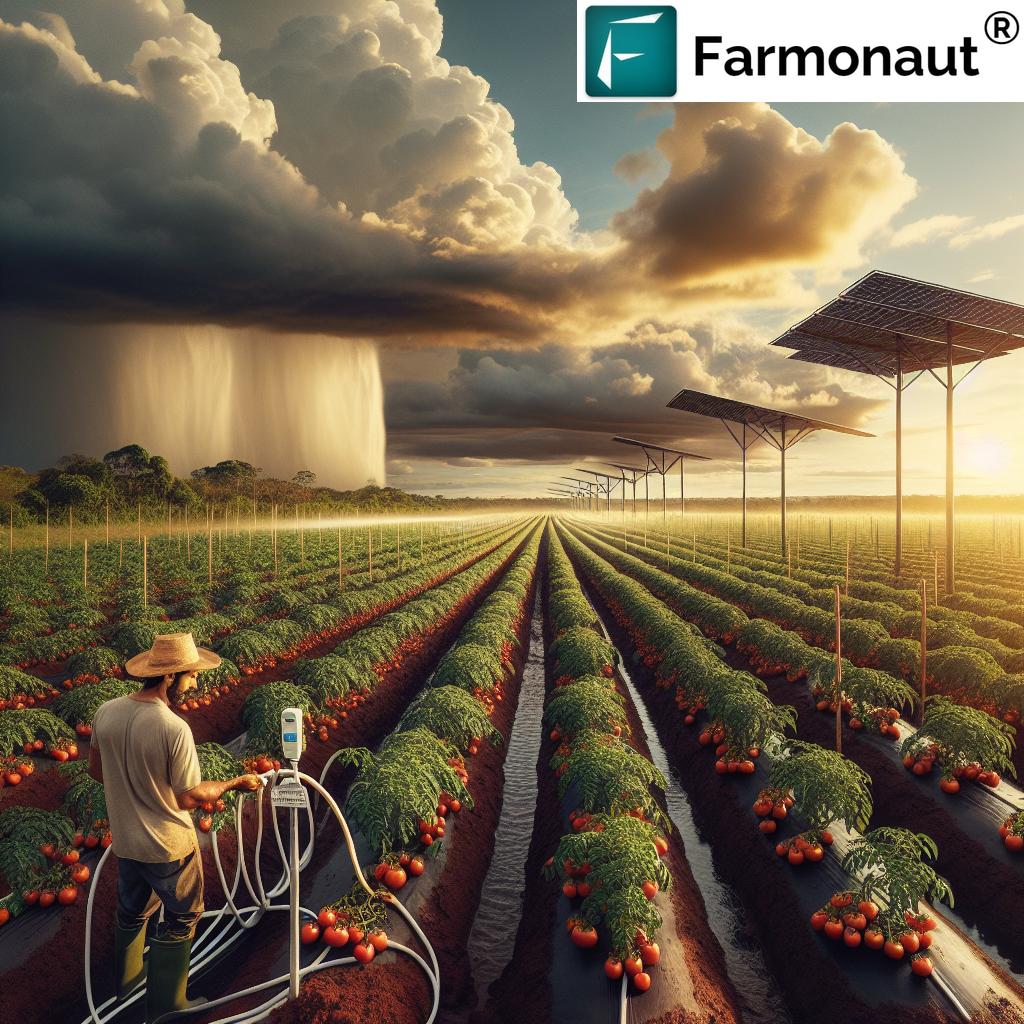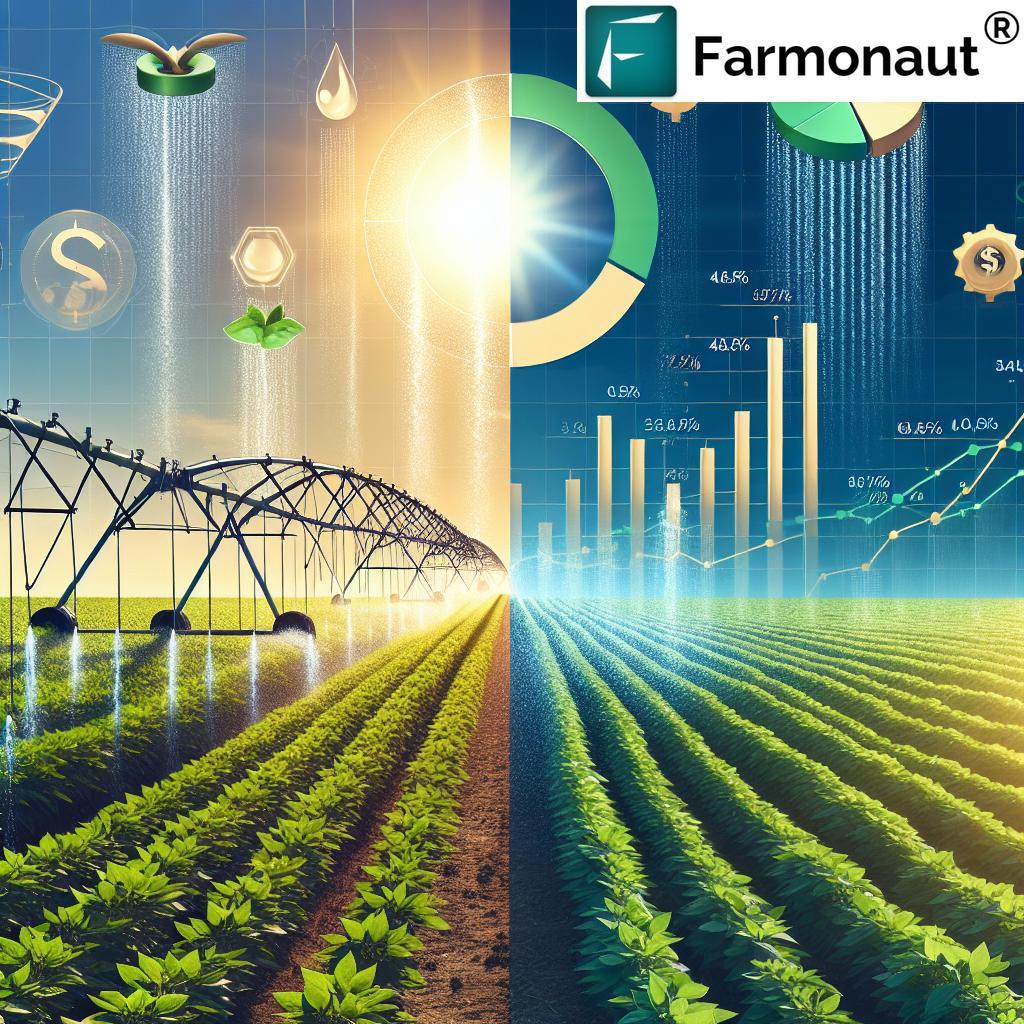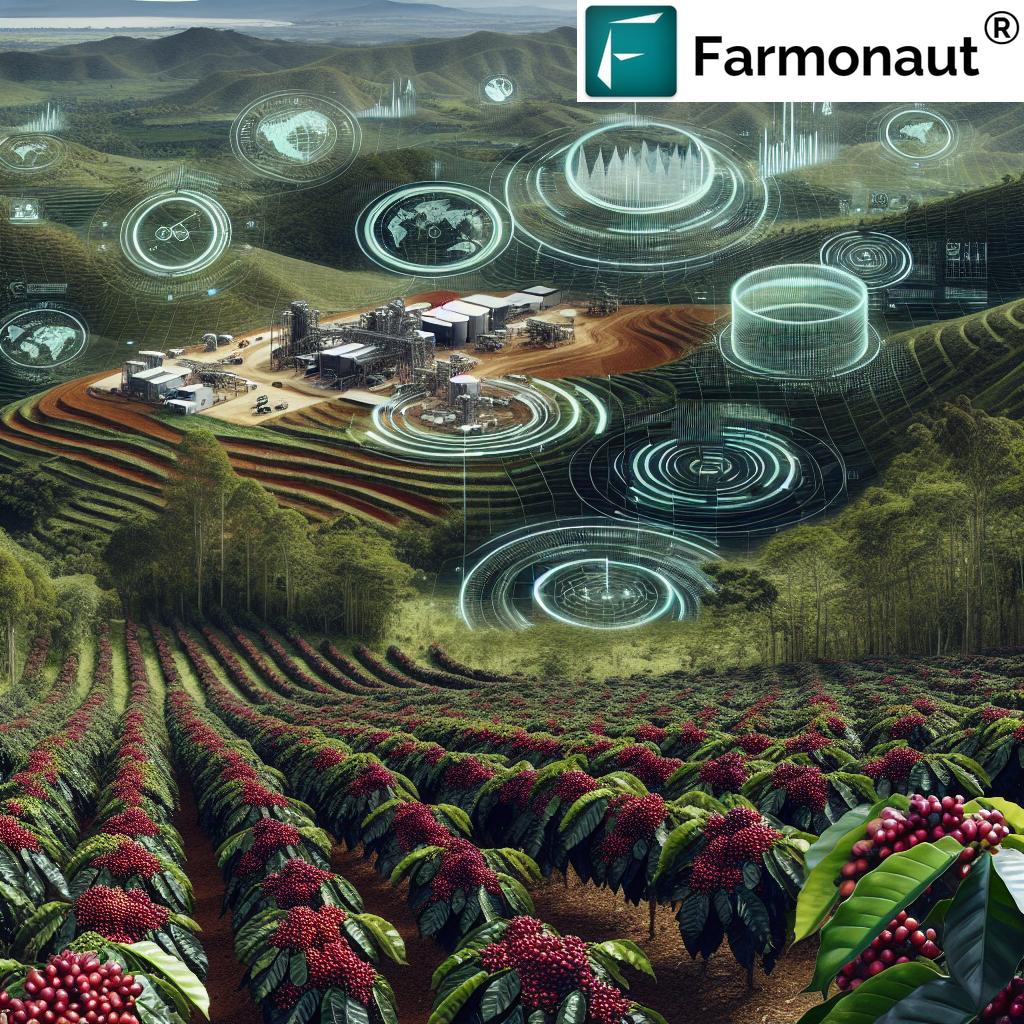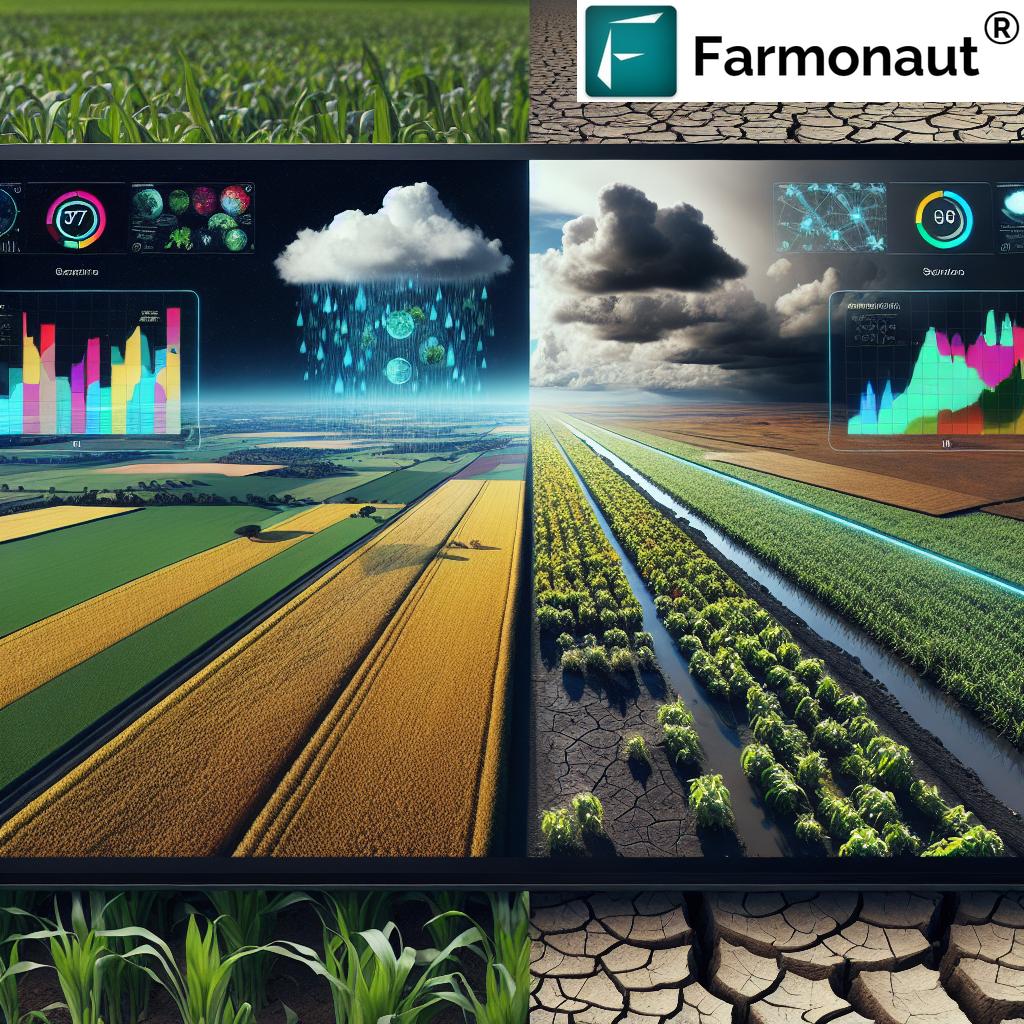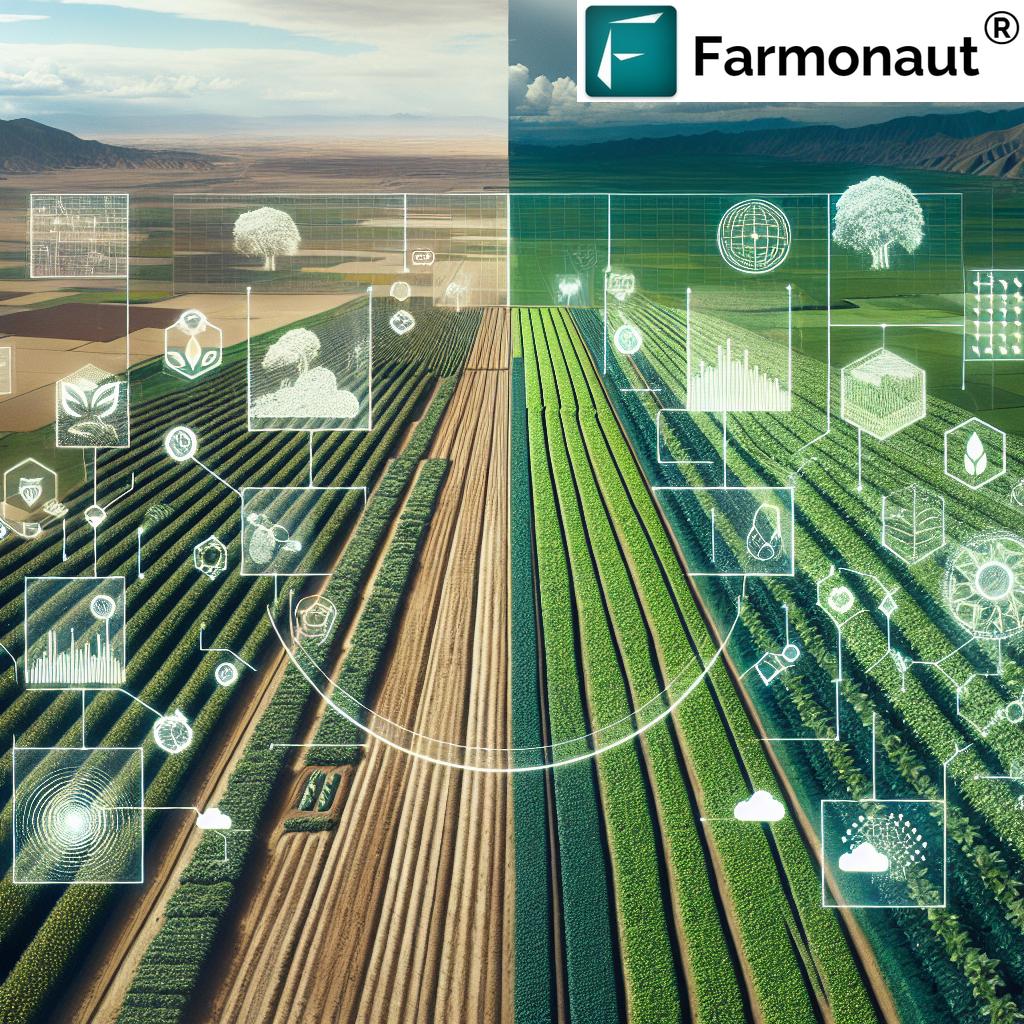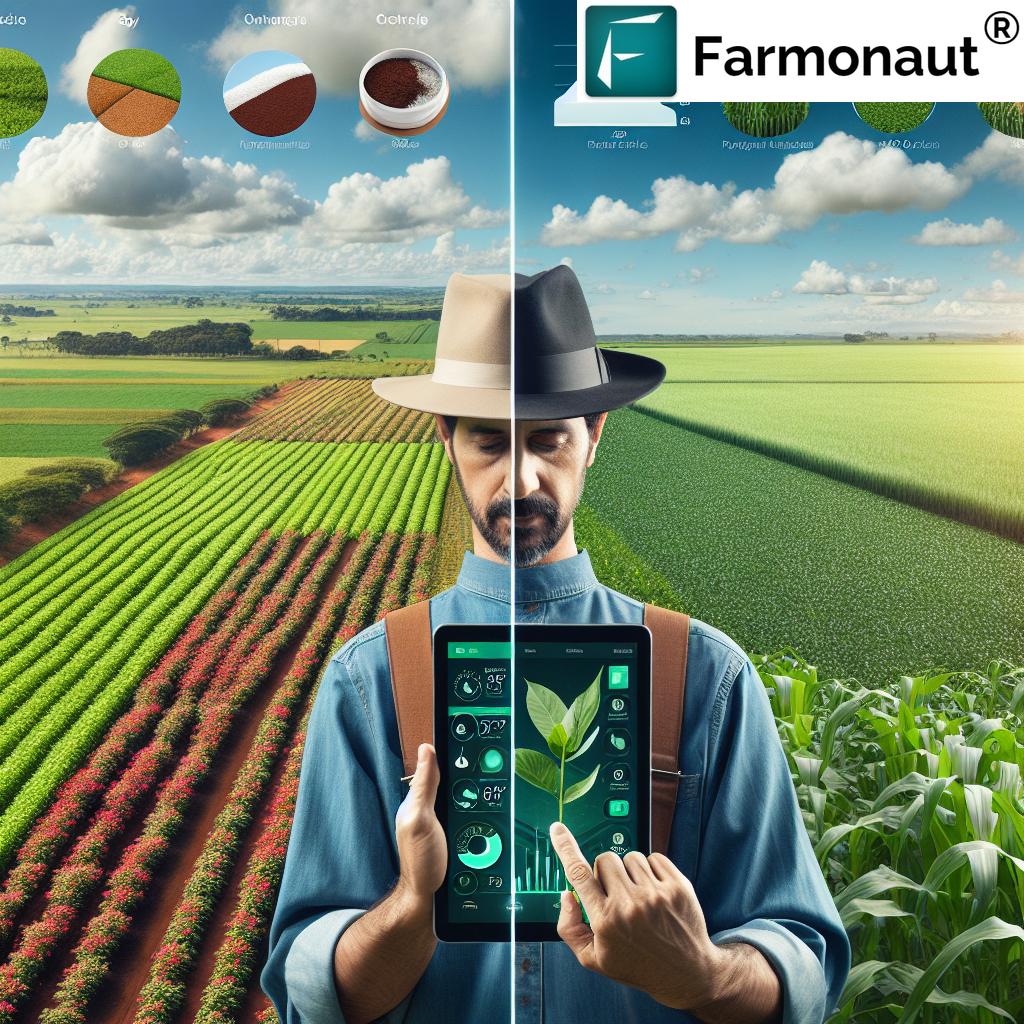Brazil’s Fruit Export Boom: Sustainable Agriculture Drives Record-Breaking Growth in Global Markets
“Brazil’s fruit exports hit a record US$1.2 billion in 2023, a 27% increase from the previous year.”
Welcome to an in-depth exploration of Brazil’s remarkable ascent in the global agri-food market. As we delve into the fascinating world of Brazilian fruit exports and sustainable agriculture practices, we’ll uncover the strategies and innovations that have propelled this South American giant to the forefront of international agricultural trade.
The Brazilian Fruit Export Revolution
In recent years, we’ve witnessed an extraordinary transformation in Brazil’s agricultural sector, particularly in fruit and vegetable production. The year 2023 marked a significant milestone as Brazil’s fruit exports soared to an unprecedented US$1.2 billion, representing a remarkable 27% increase from the previous year. This achievement not only underscores Brazil’s growing prominence in the global fruit market but also highlights the country’s commitment to sustainable agriculture practices and crop yield optimization.
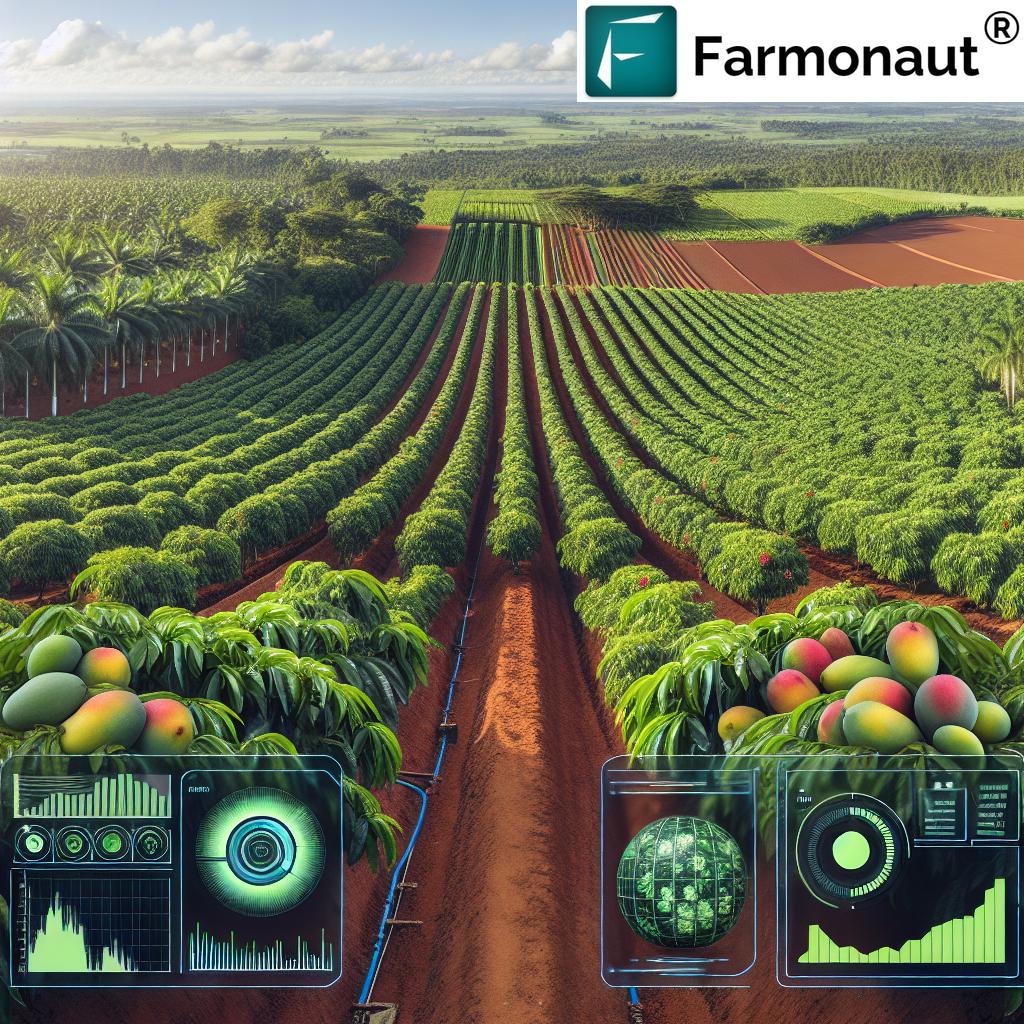
The success of Brazilian fruit exports is not an isolated phenomenon. It’s part of a broader trend of growth in the country’s agricultural sector, encompassing a diverse range of products from tropical fruits to grains and oilseeds. This growth is attributed to several key factors, including:
- Improved quality of produce
- Implementation of sustainable agriculture techniques
- Diversification of crop varieties
- Adoption of advanced agricultural technology innovations
- Strategic marketing and export strategies
A Closer Look at Brazil’s Agricultural Success
To fully appreciate the scale of Brazil’s agricultural achievements, let’s examine a comparative table showcasing the country’s export growth across various agricultural sectors:
| Export Category | 2022 Value (US$ Billion) | 2023 Value (US$ Billion) | Percentage Growth |
|---|---|---|---|
| Fruits & Vegetables | 0.94 | 1.20 | 27% |
| Grains | 23.8 | 28.5 | 19.7% |
| Oilseeds | 53.2 | 62.1 | 16.7% |
| Total Agricultural Exports | 136.5 | 159.8 | 17.1% |
This table clearly illustrates the impressive growth across Brazil’s agricultural exports, with fruits and vegetables leading the charge in terms of percentage increase. The robust performance across all categories underscores Brazil’s position as a major player in the global agri-food market.
Sustainable Agriculture: The Cornerstone of Brazil’s Success
“Brazil increased agricultural production with minimal land expansion over 45 years, showcasing sustainable growth.”
One of the most remarkable aspects of Brazil’s agricultural boom is its commitment to sustainable practices. Over the past 45 years, Brazil has managed to significantly increase its agricultural production while minimizing land expansion. This achievement is a testament to the country’s dedication to environmental stewardship and efficient resource management.
Key sustainable agriculture practices adopted by Brazilian growers include:
- Precision agriculture techniques
- Integrated pest management
- Crop rotation and diversification
- Water conservation methods
- Soil health management
These practices not only contribute to environmental conservation but also play a crucial role in optimizing crop yields and ensuring the long-term viability of Brazil’s agricultural sector.
The Role of Technology in Brazil’s Agricultural Revolution
The integration of cutting-edge agricultural technology has been instrumental in driving Brazil’s fruit export boom and overall agricultural success. From satellite-based monitoring systems to AI-powered crop management tools, Brazilian farmers are leveraging a wide array of technological innovations to enhance productivity and sustainability.
Some of the key technological advancements driving Brazil’s agricultural sector include:
- Satellite-based crop health monitoring
- Precision irrigation systems
- Drone technology for field mapping and crop assessment
- AI-powered predictive analytics for yield optimization
- Blockchain-based traceability solutions for supply chain transparency
These technological innovations have not only improved crop yields but also contributed to more efficient resource utilization, reduced environmental impact, and enhanced product quality – all crucial factors in Brazil’s growing success in international markets.
Brazil’s Fruit Varieties: A Diverse Portfolio
Brazil’s fruit export success is built on a foundation of diverse, high-quality produce. The country’s varied climate and geography allow for the cultivation of a wide range of fruits, many of which have found enthusiastic markets abroad. Some of the main fruits driving Brazil’s export growth include:
- Mangoes
- Grapes
- Melons
- Watermelons
- Lemons
- Apples
Each of these fruits has its own success story in the global market, with Brazilian growers continuously working to improve quality, extend shelf life, and meet international standards.
Key Export Markets and International Demand
Brazil’s fruit exports have found eager markets across the globe, with demand growing in both traditional and emerging markets. Some of the key destinations for Brazilian fruits include:
- European Union
- United States
- Canada
- Middle East
- Asia
The growing international demand for Brazilian fruits can be attributed to several factors:
- Consistent high quality
- Competitive pricing
- Year-round availability of certain fruits
- Growing consumer interest in tropical and exotic fruits
- Brazil’s reputation for sustainable farming practices
Government Support and Initiatives
The Brazilian government has played a crucial role in supporting the country’s agricultural sector and promoting fruit exports. Some key initiatives include:
- The FTrade Logistics Distribution Center
- Participation in international trade fairs
- Investment in agricultural research and development
- Implementation of favorable agricultural policies
- Support for small and medium-sized growers
These government efforts have helped create a supportive environment for Brazilian fruit growers and exporters, facilitating their success in the global marketplace.
Challenges and Future Outlook
While Brazil’s fruit export boom is undoubtedly a success story, the industry still faces several challenges:
- Concerns about deforestation and environmental impact
- Competition from other major fruit-exporting countries
- Fluctuations in global demand and pricing
- Logistical challenges in transporting fresh produce
- Adapting to changing climate conditions
Despite these challenges, the future outlook for Brazil’s fruit export industry remains positive. The country’s commitment to sustainable agriculture practices, ongoing technological innovation, and strategic marketing efforts position it well for continued growth in the global agri-food market.
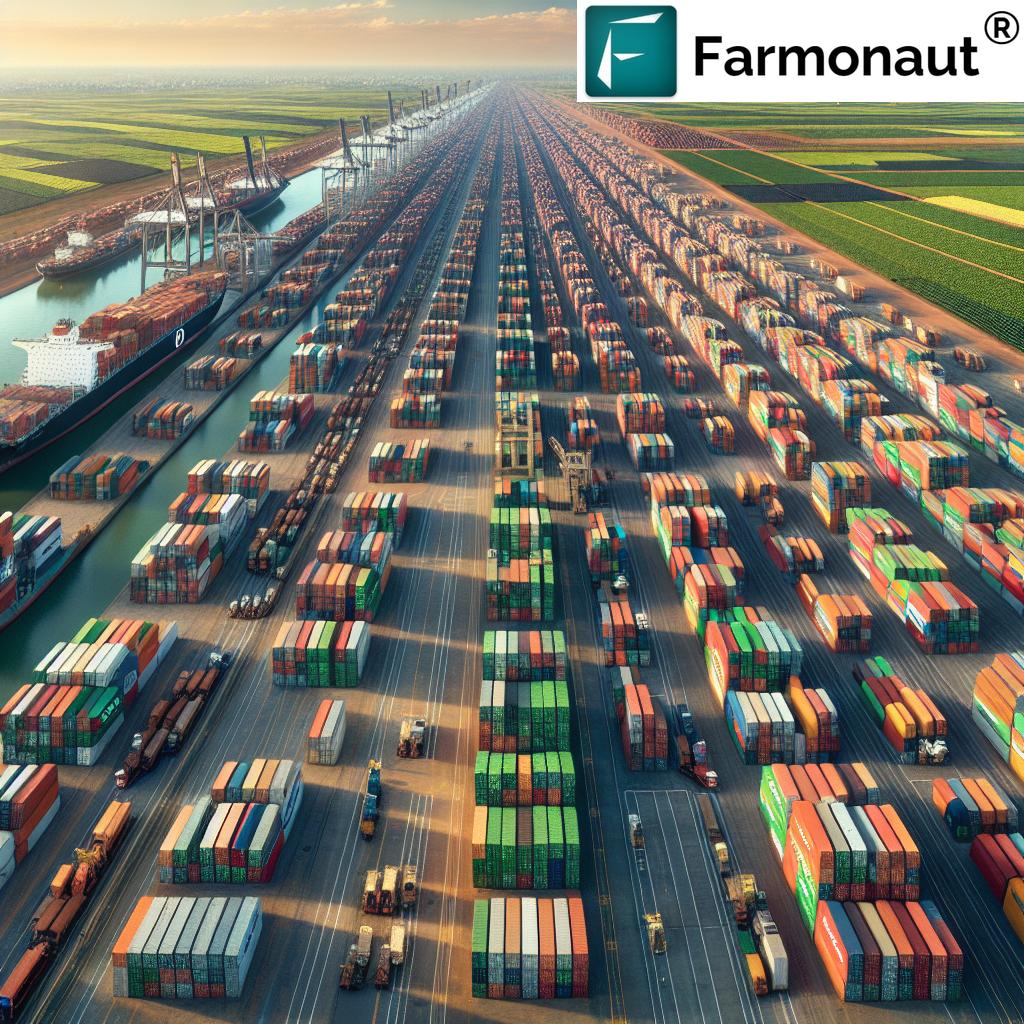
The Role of Technology in Enhancing Brazil’s Agricultural Sector
As we’ve seen, technology plays a crucial role in Brazil’s agricultural success. Companies like Farmonaut are at the forefront of this technological revolution, offering innovative solutions that can significantly benefit Brazilian farmers and exporters.
Farmonaut’s satellite-based farm management solutions provide valuable tools for precision agriculture, including:
- Real-time crop health monitoring
- AI-based advisory systems
- Resource management tools
- Blockchain-based traceability solutions
These technologies can help Brazilian growers optimize their crop yields, reduce resource waste, and ensure the quality and traceability of their produce – all critical factors in maintaining Brazil’s competitive edge in the global fruit market.
For more information on how Farmonaut’s solutions can benefit agricultural operations, visit their web app or explore their API for developers.
The Impact of Brazil’s Fruit Export Boom on Global Markets
Brazil’s surge in fruit exports is having a significant impact on global agricultural markets. As the country continues to expand its market share, we’re seeing several notable trends:
- Increased competition in traditional fruit-exporting regions
- Growing consumer awareness of Brazilian fruit varieties
- Influence on global fruit prices and availability
- Inspiration for other countries to adopt sustainable agriculture practices
- Shifts in global trade patterns and partnerships
These developments underscore Brazil’s growing influence in shaping the future of the global fruit trade and agricultural practices.
Sustainable Practices: A Model for Global Agriculture
Brazil’s success in increasing agricultural production while minimizing land expansion serves as a model for sustainable agriculture worldwide. This approach demonstrates that it’s possible to meet growing global food demand without compromising environmental integrity.
Key lessons from Brazil’s sustainable agriculture practices include:
- The importance of long-term planning and investment in agricultural research
- The value of integrating traditional farming knowledge with modern technology
- The benefits of a holistic approach to farm management, considering environmental, economic, and social factors
- The role of government policies in promoting sustainable agricultural development
- The potential for technology to drive both productivity and sustainability in farming
As global agriculture faces increasing challenges from climate change and resource scarcity, Brazil’s approach offers valuable insights for farmers and policymakers worldwide.
The Future of Brazil’s Agricultural Exports
Looking ahead, the future of Brazil’s agricultural exports, particularly in the fruit sector, appears bright. Several factors contribute to this positive outlook:
- Continued investment in agricultural research and development
- Expansion into new international markets
- Ongoing adoption of advanced agricultural technologies
- Growing global demand for healthy, sustainably produced foods
- Brazil’s commitment to maintaining high quality and food safety standards
As Brazil continues to innovate and adapt to changing global market conditions, we can expect to see further growth and diversification in its agricultural exports.
The Role of Technology in Brazil’s Agricultural Future
As we look to the future of Brazil’s agricultural sector, it’s clear that technology will play an increasingly important role. Solutions like those offered by Farmonaut can help Brazilian farmers stay at the cutting edge of agricultural innovation.
For those interested in exploring these technological solutions, Farmonaut offers several ways to get started:
- Web App for comprehensive farm management
- Android App for on-the-go monitoring
- iOS App for Apple users
- API access for developers and businesses looking to integrate satellite data into their systems
By leveraging these tools, Brazilian farmers can continue to drive innovation and sustainability in their operations, further cementing the country’s position as a leader in global agricultural exports.
Conclusion: Brazil’s Fruit Export Boom – A Testament to Innovation and Sustainability
Brazil’s remarkable success in the global fruit export market is a testament to the country’s commitment to innovation, quality, and sustainability. By embracing advanced agricultural technologies, implementing sustainable farming practices, and strategically targeting international markets, Brazil has positioned itself as a leader in the global agri-food industry.
The country’s ability to significantly increase agricultural production while minimizing land expansion demonstrates that economic growth and environmental stewardship can go hand in hand. As Brazil continues to refine its agricultural practices and explore new markets, it sets an inspiring example for other nations seeking to develop their agricultural sectors sustainably.
The future of Brazil’s fruit exports looks bright, with ongoing technological advancements and a growing global demand for high-quality, sustainably produced fruits. As we move forward, Brazil’s success story in the agricultural sector will undoubtedly continue to shape international agricultural trade and inspire sustainable farming practices worldwide.
FAQ Section
- What factors have contributed to Brazil’s fruit export boom?
Key factors include improved quality, sustainable agriculture practices, diversification of crops, adoption of advanced technologies, and strategic marketing efforts. - How has Brazil managed to increase agricultural production without significant land expansion?
Through the implementation of sustainable farming practices, precision agriculture techniques, and efficient resource management. - What are some of Brazil’s main fruit exports?
Major fruit exports include mangoes, grapes, melons, watermelons, lemons, and apples. - How is technology contributing to Brazil’s agricultural success?
Technology plays a crucial role through satellite-based monitoring, AI-powered crop management, precision irrigation, and blockchain-based traceability solutions. - What challenges does Brazil’s fruit export industry face?
Challenges include concerns about deforestation, global competition, market fluctuations, logistical issues, and adapting to climate change.



